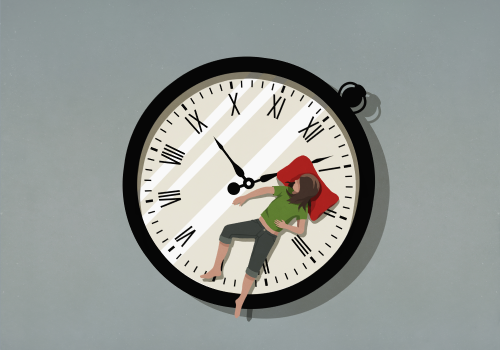4 Tips for Getting a Good Night’s Rest

Does this sound familiar? Your alarm clock rings and you say to yourself, “What? Already?” Once again, you wake up just as tired as when your head hit the pillow the night before. For many of us, getting good-quality sleep can feel like a pipe dream. We all want to wake up looking perky and refreshed. But did you know quality sleep benefits much more than just our outward appearance? Let’s look at some of the less obvious effects of poor-quality sleep and explore different ways to help improve your sleep.
Sleep quality can have an impact on:
Body weight: Poor quality sleep can cause an increase in a hormone called Ghrelin. Ghrelin acts like an appetite stimulant. It increases food cravings, often for comfort foods that are high in carbohydrates and fat. This can lead to unwanted weight gain and increase a person’s risk for diabetes and heart disease.
Body metabolism: When you don’t get enough sleep, it can your body’s metabolism to lower. Metabolism is the process in which our body converts what we eat and drink into the energy we need to live. When our metabolism is lower, we tend to burn fewer calories and then store them in our body, typically as fat. This can lead to weight gain, higher blood sugar levels, insulin resistance and heart disease.
Brain power: People with improved sleep quality report having improved memory, attention span and problem-solving abilities.
4 Sleep Tips to Help You Catch Some ZZZs
1. Stay on schedule: Help
your mind and body get into a healthy sleep routine by going to bed at the same
time every evening and getting up at the same time every morning.
2. Set the mood: Establish a wind-down routine about an hour before your
set bedtime. Take a relaxing bath, read an enjoyable book, or spend quiet time
meditating and clearing your mind of the day’s worries. Avoid watching TV or
using the computer or cell phone for at least one hour before turning in for
the night. Ideally, your bedroom should be a haven for rest: quiet and dark, with
comfortable bedding and good temperature control.
3. Mind your food: A small snack before bed can prevent hunger pangs from
keeping you awake. However, avoid eating a large or heavy meal within two hours
of bedtime as this might cause discomfort that will keep you up. Caffeine and
alcohol are sleep busters, too. The stimulating effects of caffeine take hours
to wear off. Alcohol may seem helpful because it causes drowsiness at first, but
it will disrupt your sleep pattern hours later and lead to poor-quality sleep.
4. Ditch the clock: Watching time pass on the bedroom clock only adds
to the frustration of not being able to sleep. If possible, take the clock out
of your bedroom. If you need the clock for the alarm, simply turn it around so
you can’t see the time.
Nearly everyone has an occasional sleepless night. If you find you have persistent problems with tossing and turning and waking up feeling exhausted, talk with your doctor or care team. Identifying and treating underlying causes of sleep issues can help you sleep well and wake up to a refreshed and healthier you!
Additional Kidney Diet Resources
Visit DaVita.com and explore these diet and nutrition resources:
DaVita Kidney-Friendly Recipes
This article is for informational purposes only and is not a substitute for medical advice or treatment. Consult your physician and dietitian regarding your specific diagnosis, treatment, diet and health questions.

Recent Comments